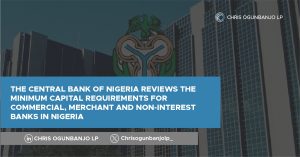Introduction
The Lagos State Land Use Charge is a consolidation of all property and land based rates and charges erstwhile payable under land rates, neighborhood improvement charge and tenement rates laws of Lagos State. The Land Use Charge as the name implies is a novel imposition on the owner of a property for the use and enjoyment of the property with the primary aim of improving the internally generated revenue of the State. This is especially instructive in the light of the steady population growth of the State and decline in the funds allocation from the federation account. However, notwithstanding its laudable objectives, the Land Use Charge Law has engendered controversies since its enactment especially as relates to its implementation and enforcement. Some of these contentions range from the capricious determination of the capital values of a property without recourse to any identifiable and tested scientific method, to arguments on the constitutionality of a State government to usurp the powers of a Local Council to impose and collect tenement rates. It is amidst these festering controversies that the Land Use Charge Amendment Law 2018 was enacted.
Overview of the Provisions of the Land Use Charge Amendment Law
The Law repeals the Land Use Charge Law 2001, and is divided into 37 sections. The long title of the law states:
A law to provide for the consolidation of property and land based charges and make provision for the levying and collection of land use charge in Lagos state for connected purposes.
The Law designates each Local Government Area in the State as the legitimate collecting authority and shall be the only body empowered to levy and collect tenement rates for its area of jurisdiction. Furthermore, the Law provides that Land Use Charge shall be payable in respect of all properties in the State with the exception of properties exempted under Section 12 of the Law ; these exempted properties include property owned and occupied by a religious body and used exclusively as a place of worship or religious education, public cemeteries/burial grounds, properties used as a registered educational instituted and duly certified by the Commissioner to be non-profit oriented, as well as palaces of recognized Obas and Chiefs in the State.
More so, under the Law, the Commissioner is entrusted with the responsibility of generating and issuing in each financial year a Land Use Charge Demand Notice with respect to every chargeable property that has been duly assessed in accordance with the provisions of the Law. The Law also provides for the manner of service of demand notices on owners of chargeable property:
The Land Use Charge Demand Notice may be delivered to the owner or occupier and can also be requested for by either the owner, occupier or authorized agent of the property at any of the Land Use Charge offices or via electronic platform.
Lastly, the Law stipulates that the annual amount of Land Use Charge payable on any property shall be arrived at by multiplying the market value of the property by the applicable relief rate and annual charge rate, using the prescribed formula.
Highlights of Changes from the Previous Legal Regime
Chargeable Property
The definition of chargeable property has been extended to include a building; any improvement on land; a parcel of land, whether or not reclaimed, waterlogged or otherwise; a wharf or pier.
Computation of Land Use Charge Payable on Properties
Land Use Charge under the new Law is now calculable on the commercial/market value of a property. Furthermore valuation is to be assessed by professional estate valuers appointed by the Commissioner and subject to review at 5 years intervals.
Chargeable Persons
Under the Law, the obligation to pay Land Use Charge no longer rests solely on the owner of a property as the law now places that responsibility on either the owner or occupier of a lease of less than ten years. However, for leases spanning ten years or more, liability to pay Land Use Charge assessed on the property resides solely on the occupier. The Law has also revised the definition of an occupier to include persons unlawfully in occupation of property.
Chargeable Rate
The rate to be applied in computing Land Use Charge payable on a property has increased significantly under the new Law. For a owner-solely-occupied residential property, the rate is now fixed at 0.076% as against 0.0394% of the chargeable value of the property previously applicable; for a residential property without the owner in residence/Commercial property, the rate is now fixed at 0.76% of the chargeable property as against 0.394% for commercial properties previously applicable; while for industrial property, the new rate is 0.256% of the chargeable rate of the property as against 0.132% previously applicable.
Delimitation of Exempted Property
The Law has restricted the scope of exempted properties and properties like registered educational/religious institutions are now exempted only when they are certified to be non-profit making. In addition, private cemeteries are no longer exempt from Land Use Charge.
The Law also makes provision for owners of chargeable properties to voluntarily assess Land Use Charge payable and remit same to the relevant agency. Owners can also utilize electronic platforms sanctioned by the State Government in making payments.
Incentives/Reliefs
In order to ease payment and promote general compliance, the Law incorporates certain incentives such as 100% relief for retirees, and partial reliefs for owners on the consideration of their age, physical challenges/disability, and duration of residency.
Establishment of an Assessment Appeal Tribunal
An Assessment Appeal Tribunal has been constituted under the Law as a quasi-judicial body established to receive and determine complaints from the public on overvaluation or exemption of their respective properties with additional powers to adopt Alternative Dispute Resolution.
Penalty
The penalty for contravention of the provisions of the Law has been increased to a maximum fine of N250,000.00 as against N100,000.00 in the repealed law.
Right of Action
The Attorney-General of the State has been granted additional powers to institute action to enforce payment of Land Use Charge levied on a property as well as to distrain property of defaulting payers pursuant to an Order of Court.
There is no gainsaying that the Land Use Charge Amendment Law has introduced some changes in the policy and administration of Land Use Charge in Lagos State. Nonetheless, it is debatable if these changes are of a profound nature to justify the repeal of the previous law. In fact this writer can observe lots of similarities in the provisions of the old law and the new Law. An amendment without repeal could have sufficed in introducing these reforms.
In addition, even though its conceded that it’s within a government’s inherent powers to increase tax rates within its domain, such powers must however be exercised with restraints bearing in mind that taxes must also conform with the universally acclaimed principles of equity and fairness. Hence, the unilateral and sudden increase of the Land Use Charge rates especially in this period of biting economic hardship is at best misconceived and expropriatory in nature. In fact, some stakeholders have questioned the rationale behind basing the rate on the capital value of the property rather than the rental income noting that such actions may discourage investment in the real estate sector.
Lastly, the new Law has not in any way addressed the raging controversy on the constitutionality of the Land Use Charge Law viz a viz the Constitution which provides that the Local Government is the proper tier of government to assess and collect tenement rates. This is notwithstanding the fact that the Law provides that Land Use Charge is to be collected by the Local Government. In fact, the repealed Law also contained a similar provision but with the benefit of hindsight, this has proved to be untrue.
Article written by Olayinka Alao LL.B (Lagos), B.L (Abuja), LL.M (Lagos), Associate at Chris Ogunbanjo



